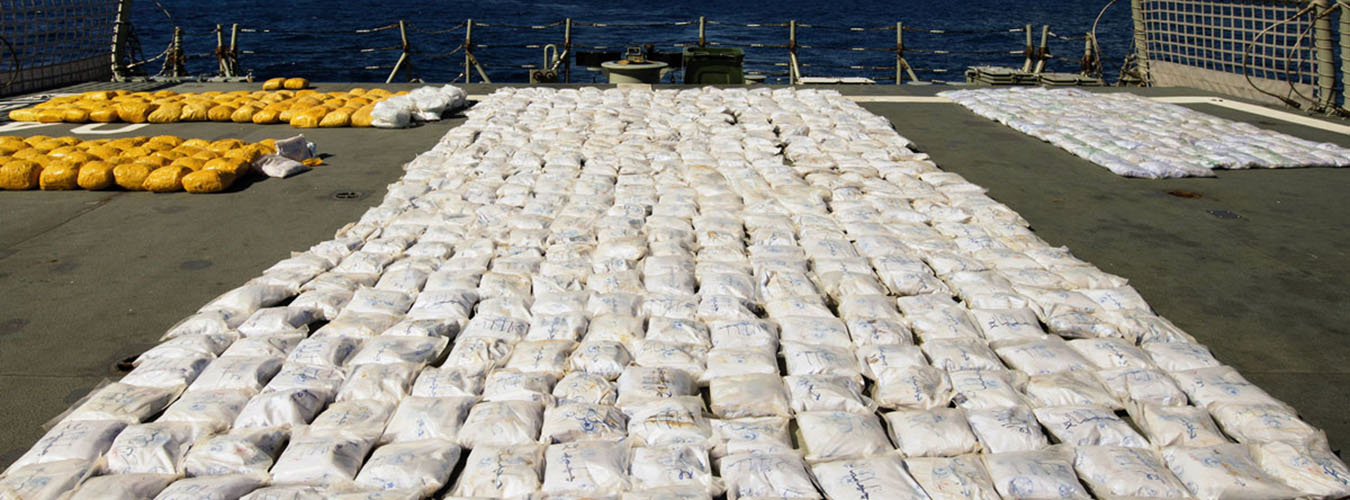The Dark Side of Global Trade: Examining the Resilience of the Drug Problem and the Role of the United Nations
RehabilitationPosted by AI on 2025-08-30 00:06:44 | Last Updated by AI on 2025-08-30 03:23:29
Share: Facebook | Twitter | Whatsapp | Linkedin Visits: 0

Despite global cooperation through the United Nations to combat the trade of drugs, the problem persists as an enduring dilemma. Since the early 20th century, the UN has spearheaded efforts to develop a multilateral system to curb drug production, trafficking, and abuse. However, the trade continues to undermine the health, dignity, and peace of individuals and societies worldwide.
The Commission on Narcotic Drugs (CND), established in 1946, assists the UN in supervising the implementation of the international drug control treaties. Through the Economic and Social Council (ECOSOC), the CND works to supervise global drug control conventions aimed at tackling the opioid crisis.
However, despite these efforts, the trade of drugs continues to threaten the global community, causing social, economic, and health problems.
To address this issue, the UN Office on Drugs and Crime (UNODC) supports members states in implementing a balanced approach to the world drug problem. This health-based and evidence-backed approach addresses both demand and supply, guided by human rights and the framework of international drug control conventions.
The member states, through the Political Declaration and Plan of Action on International Cooperation Towards an Integrated and Balanced Strategy to Counter the World Drug Problem, pledged to work towards the goals and targets set out in the declaration. The UN General Assembly Special Session (UNGASS) in 2016 assessed progress towards addressing the world drug problem, resulting in over 100 operational recommendations in seven thematic chapters.
Most recently, in March 2019, through the Ministerial Declaration, member states reaffirmed their determination to address and counter the world drug problem and promote a society free of drug abuse. They expressed their commitment to ensuring that all people can live in health, dignity, peace, and prosperity, free from the negative impacts of drug abuse.
Despite the enduring nature of the drug problem, the resilience of the global community to combat it should not be overlooked. Through the UN's coordinated efforts, a comprehensive, multilateral system has developed to control the production, trafficking, and abuse of drugs. While there is still much work to be done, the progress achieved through the UN's leadership should be celebrated, as we work together to create a healthier, more prosperous future for all.
Search
Categories
- Sports
- Business
- History
- Politics
- International
- Science & Technology
- Social Issues
- Disaster Management
- Current Affairs
- Education
- Startup Business
- Startup News
- Awards
- Community Services
- Fundraising Events
- Volunteer Services
- Health Initiatives
- Innovations and Initiatives
- In News
- Banners
- Awards
- Partners
- Products
- Press Releases
- News
- Fast Check
- South
- సినిమా
- Gallery
- Sunday Chronicle
- Hyderabad Chronicle
- లైఫ్ స్టైల్
- National
- క్రైం
- ట్రెండింగ్
- జాబ్స్
- అంతర్జాతీయo
- బిజినెస్
- రాజకీయం
- బిజినెస్
- సంపాదకీయం
- నవ్య
- చిత్ర జ్యోతి
- క్రీడలు
- జాతీయం
- తెలంగాణ
- తాజా వార్తలు
- మన పార్టీ
- మన నాయకత్వం
- మన విజయాలు
- డౌన్లోడ్స్
- మీడియా వనరులు
- కార్యకర్తలు
- North East Skill Center News
- Government Schemes
- Entrepreneurship Support
- Employment Opportunities
- Skill Training Programs
- Departments
- Investments
- Initiatives
- Resources
- Telangana IT Parks
- Events & Jobs
- Press Releases
- News
- Airport News
- Newtons Laws of Motion
- Karbonn in Business
- Investments in Karbonn
- Company quarterly sales
- Markets
- Auto News
- Industry
- Money
- Advertisements
- Stock target
- Company Updates
- Stock Market
- Company Sales
- Staffing and HR
- Constituency Assembly
- General News
- Srikalahasti Temple
- Bojjala Sudhir Reddy
- Technology & Innovation
- Sports
- Business
- Products
- Industries
- Services & Trainings
- Tools & Resources
- Technology Integration
- Drug Seizures & Arrests
- Telangana Narcotics
- Law & Enforcement
- Rehabilitation
- Nationwide Drug Policing
- Nigeria Seizures
- Global Operations
- Drug Awareness
- Drug Enforcement Tech
- NCB Drug Seizures
- Judicial Crackdown
- India's Surveillance Tools
- Cross-Border Links
- Women Safety
- Cyber Crimes
- Drug Abuse
- Traffic & Road Safety
- Community Connect
- Public Safety Alerts
- Citizen Assistance
- Nellore City News
- Politics & Administration
- Events & Festivals
- Agriculture & Rural
- Business & Economy
- Health & Wellness
Recent News
- How Does Water Get Released From Clouds?
- Corporate Cobra Boosts Salary by 100% Through One Switch
- Domestic Murder in Hyderabad
- Why Tottenham may have struck gold with the Thomas Frank signing
- Pakistan's Reaction to 'Operation Sindoor' Indicate Readiness for Talks with India
- Hindus are angry, and Muslims are worried following an interaction meeting held by the Hyderabad Police Commissioner CV Anand, to discuss "sensitive religious issues".
- How safe do you feel? Telangana citizens can now easily answer this question thanks to a new initiative from the state's police department. Citizens can now scan QR codes displayed prominently at police stations, offices, and other locations to provide feedback on the state police services.
- Sure! Here is a rewritten version of the article provided, formulated as a new and original news piece.